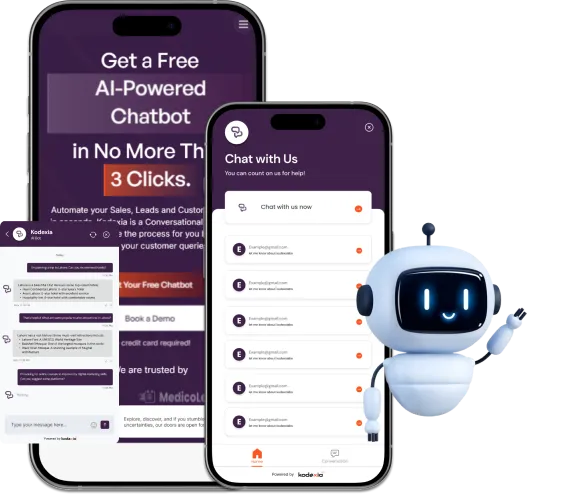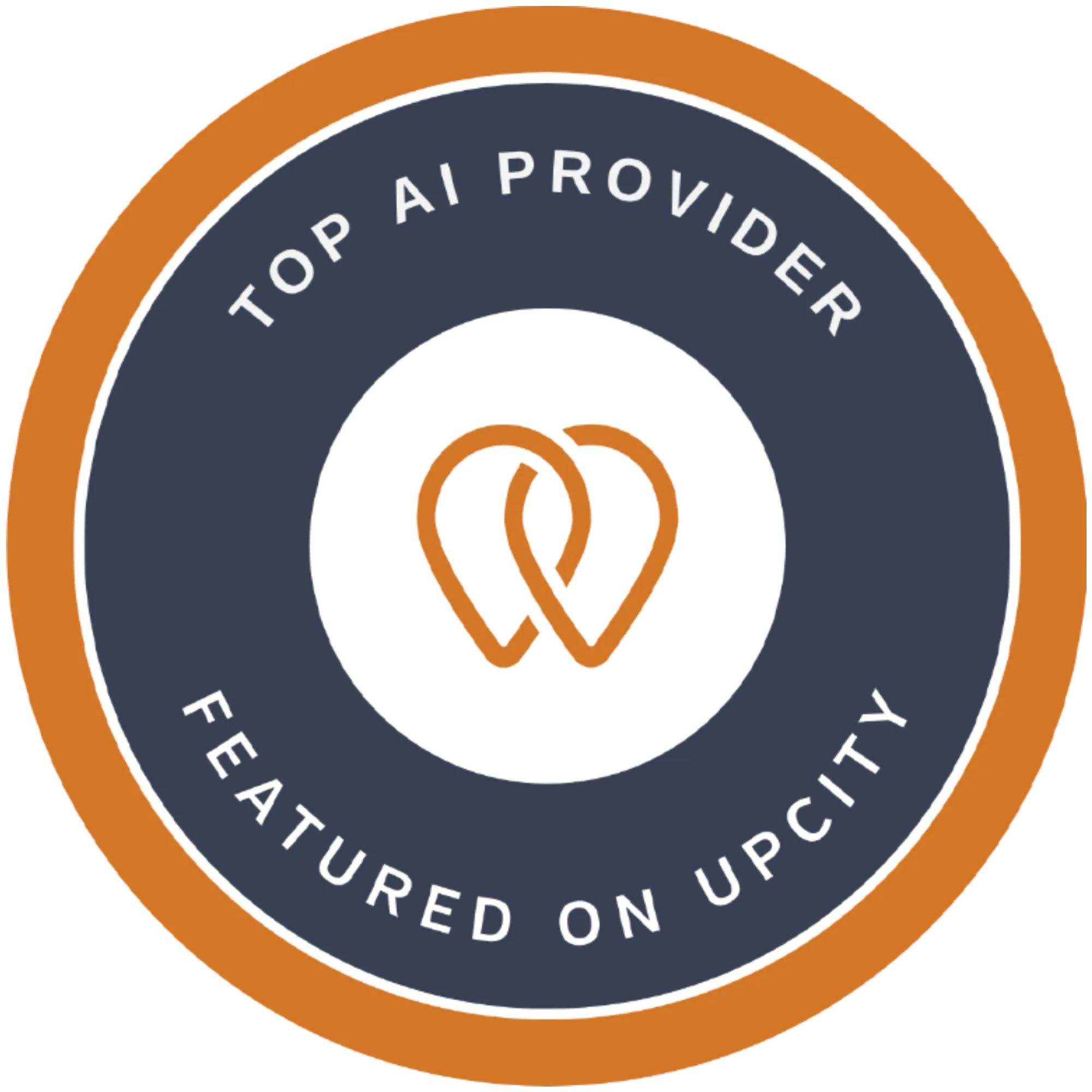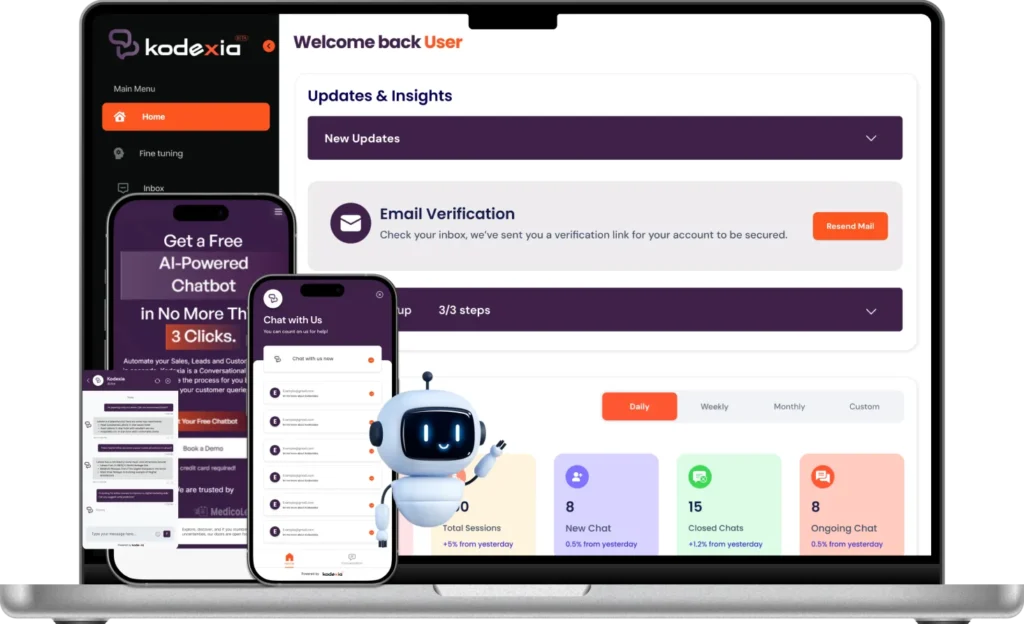AI Tutor Systems – Get the Support You Need, When You Need It!
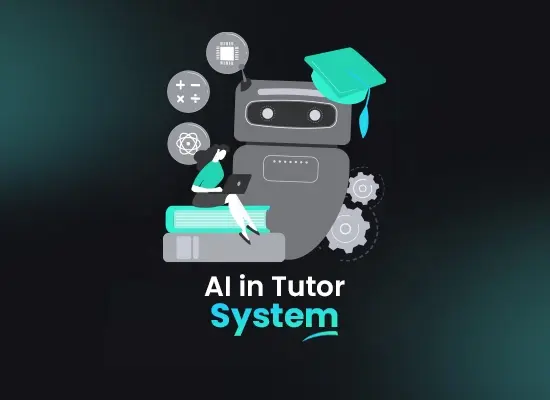
Contents
AI Tutor Systems represent a cutting-edge approach to personalized learning, harnessing the power of artificial intelligence to provide tailored educational experiences for students. These systems utilize advanced algorithms to adapt to individual learning styles, preferences, and pace, making learning more engaging and effective. Join us as we explore the transformative potential of AI Tutor Systems in education.
What are AI Tutor Systems?
In the ever-evolving field of education, AI tutor systems are emerging as powerful tools for Artificial Intelligence in learning and development. These intelligent systems harness the power of artificial intelligence to create personalized learning experiences, going beyond traditional one-size-fits-all approaches.
AI based tutor systems function by combining various AI techniques like machine learning and natural language processing. They can assess a student’s strengths, weaknesses, and learning style, tailoring the educational content and delivery based on this individual data. This allows for learning that adapts to the student’s pace and progress, offering targeted support and resources where needed.
The core benefit of AI based tutor systems lies in their ability to provide personalized education. Unlike traditional methods, these systems can create individualized learning paths that cater to each student’s unique needs. This fosters deeper understanding, improves knowledge retention, and ultimately empowers students to take ownership of their learning journey.
Furthermore, AI based tutor systems offer the advantage of automated learning, allowing students to learn at their own pace and convenience. This flexibility caters to various learning styles and schedules, making education more accessible and engaging for a wider range of learners.
While AI based tutor systems are still evolving, they hold immense potential to revolutionize the educational landscape. By personalizing the learning experience and offering AI and Machine Learning development opportunities, they can create a more effective and engaging learning environment for students of all ages and backgrounds.
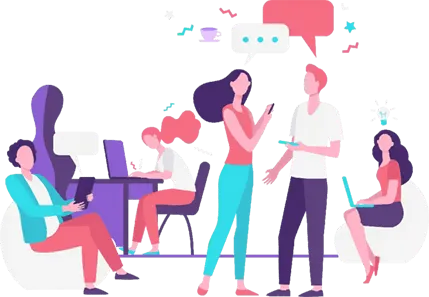
How AI Tutor Systems Work – A Comprehensive Overview:
In the realm of AI in learning and development, AI tutor systems are revolutionizing the way we approach education. These systems leverage sophisticated algorithms to personalize the learning experience for each individual, ushering in an era of automated learning and personalized education. At the core of AI based tutor systems lies a combination of powerful algorithms:
Natural Language Processing (NLP):
Natural Learning Processing enables the system to understand and respond to student inquiries and feedback in a natural and engaging way. This creates a more interactive learning environment, fostering deeper understanding and retention.
Machine Learning:
This allows the system to analyze vast amounts of student data, including their performance, learning styles, and preferences. By identifying patterns and trends, the system can adapt the learning content and pace to meet the specific needs of each student.
Recommendation Engines:
Based on the student’s progress and learning style, the system can recommend additional learning materials, exercises, and challenges. This ensures continuous engagement and reinforces key concepts while pushing the student towards mastery.
These algorithms work in tandem to create a dynamic and personalized learning experience. As the student progresses, the system continuously learns and adapts, tailoring the learning journey to their evolving needs and knowledge gaps. This learning approach empowers students to learn at their own pace, maximizing their potential and fostering a love for learning.
AI tutor systems hold immense potential to revolutionize the educational landscape through Machine Learning, offering a more effective, engaging, and personalized education experience for all learners.
Advantages of AI Tutor Systems for Learners:
In the ever-evolving world of education, AI based tutor systems are making waves with their unique approach to learning. These systems, powered by MLOps in learning, offer a multitude of advantages for students, fostering a more engaging and personalized learning experience.
One of the key benefits of AI based tutors is their ability to provide automated learning. Students can work at their own pace, revisiting challenging concepts or accelerating through familiar ones. This self-directed learning fosters a sense of ownership and control over the learning process, empowering students to take charge of their educational journey.
Furthermore, AI based tutors excel at delivering personalized education. By analyzing student performance and learning styles, these systems can tailor the learning path to each individual’s needs. This adaptability ensures students receive targeted instruction, focusing on areas requiring reinforcement while allowing them to move quickly through concepts they have already grasped.
Beyond the academic benefits, AI based tutors can also cultivate a more engaging learning environment. Through interactive exercises, gamified elements, and immediate feedback, these systems keep students motivated and invested in the learning process. This can be particularly beneficial for students who struggle with traditional methods of learning or find them less stimulating.
AI Tutor Systems in STEM Education – Bridging the Gap:
The landscape of education is constantly evolving, and AI in learning and development presents exciting possibilities to bridge the gap in STEM education. AI Tutor Systems are emerging as a powerful tool to personalize learning experiences and make STEM education more accessible and engaging for all students.
These intelligent systems leverage learning capabilities to adapt to individual student needs and learning styles. By analyzing student performance data, AI based tutors can identify areas of strength and weakness, tailoring instruction and providing targeted support in real-time. This personalized approach goes beyond the traditional one-size-fits-all model, allowing students to progress at their own pace and master concepts more effectively.
Furthermore, AI based tutor Systems can offer education experiences beyond just addressing individual learning styles. They can incorporate elements like gamification, interactive exercises, and real-world simulations to make learning more engaging and enjoyable. This fosters a deeper understanding of complex STEM concepts and motivates students to explore further.
The potential benefits of AI based tutor Systems extend beyond individual student learning. They can alleviate the workload of educators, allowing them to focus on providing more personalized guidance and fostering deeper connections with their students. Additionally, AI based tutors can offer 24/7 support, providing students with access to learning resources beyond the classroom environment.
While AI based tutor Systems hold immense potential, it’s crucial to remember that they are not meant to replace educators entirely. Instead, they should be viewed as valuable tools that can bridge the gap in STEM education by providing personalized learning experiences, fostering deeper understanding, and supporting both students and educators in achieving optimal learning outcomes.
Overcoming Challenges in Implementing AI Tutor Systems:
The AI integration of AI in learning and development offers immense potential, but implementing AI based tutor systems comes with its own set of challenges that need to be addressed to ensure their effectiveness and widespread adoption.
One key challenge lies in creating a balance between automated learning and human interaction. While AI based tutors can offer personalized insights and adaptive learning paths, they can’t replicate the crucial role of human educators in providing guidance, motivation, and emotional support.
Another challenge concerns the development of AI based tutors capable of truly personalized education. To be truly effective, these systems need to go beyond simply adapting content and question difficulty. They must consider individual learning styles, pace, and emotional states, and adapt their teaching approach accordingly. This requires complex algorithms and vast amounts of data to train and continuously improve the AI based tutors.
Furthermore, concerns regarding bias in data analytics algorithms can also pose a significant challenge. If not carefully addressed, such biases could lead to unfair and unequal learning experiences for different groups of students. Mitigating bias requires careful data selection, algorithm design, and ongoing monitoring to ensure fairness and inclusivity in the learning process
Finally, the successful implementation of AI based tutors also hinges on addressing ethical considerations. Issues like data privacy, student control over their learning data, and transparency in how AI makes decisions all need to be carefully considered and addressed to build trust and ensure responsible use of AI in education.
By acknowledging and proactively addressing these challenges, we can move forward in harnessing the true potential of AI to create more effective, personalized, and equitable learning experiences for all.
Enhancing Personalized Learning with AI Tutor Systems:
The landscape of learning and development is undergoing a significant transformation with the integration of AI in learning and development. One particularly impactful application lies in personalized education, where AI based tutor systems are revolutionizing the way students learn.
These intelligent systems leverage automated learning algorithms to create a unique and tailored learning experience for each individual. By analyzing student data, including learning styles, strengths, weaknesses, and progress, AI based tutors can:
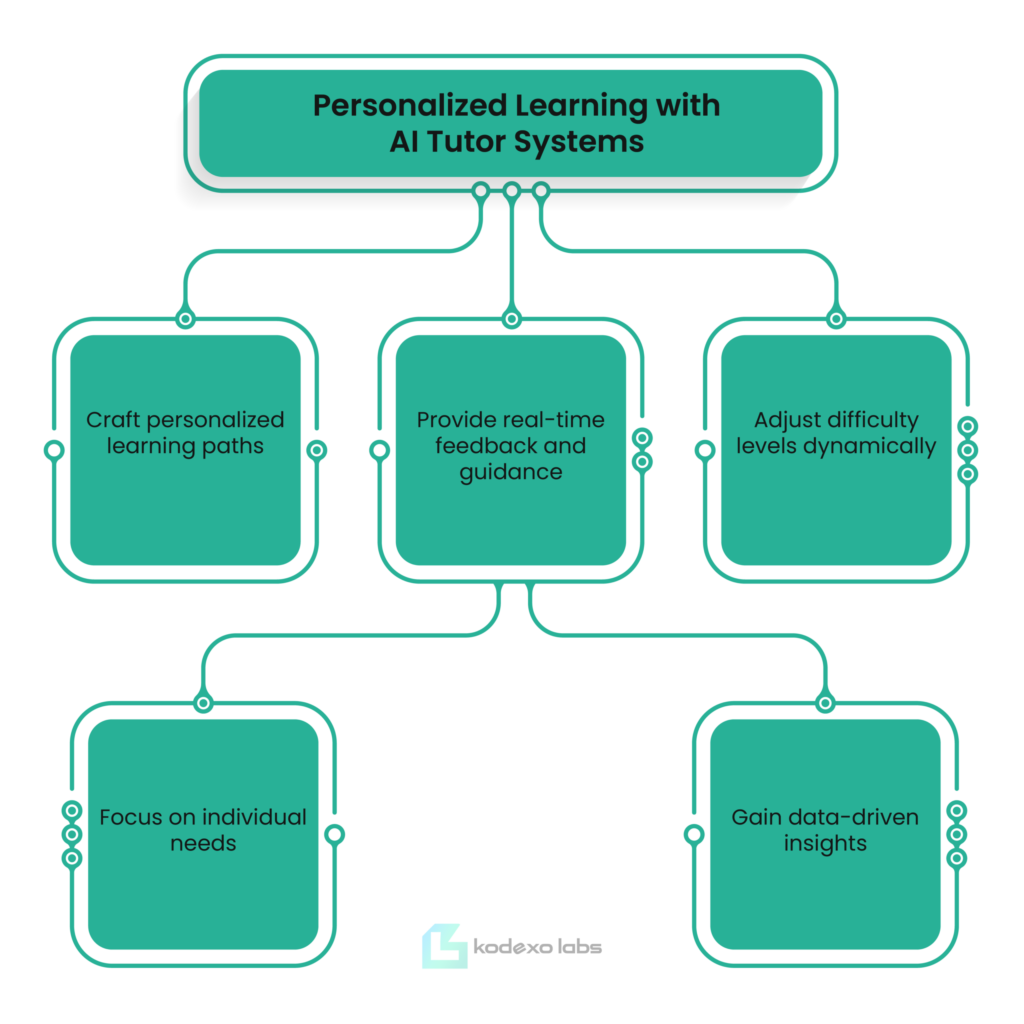
Craft personalized learning paths:
AI based tutors can recommend specific learning materials, activities, and assessments based on a student’s individual needs and goals, ensuring they are appropriately challenged and engaged.
Provide Real-Time Feedback and Guidance:
AI based tutors can offer immediate feedback on student work, identifying areas for improvement and suggesting next steps. This allows for automated learning to be more responsive and adaptive to individual student needs.
Adjust Difficulty Levels Dynamically:
Based on student performance, AI based tutors can automatically adjust the difficulty of learning materials, ensuring students are neither overwhelmed nor underchallenged.
This personalized approach fosters a deeper understanding and retention of knowledge. Additionally, AI based tutors can offer 24/7 availability, providing students with consistent support and access to learning resources outside of the classroom, further enhancing the education experience.
However, it’s important to remember that AI based tutors are not meant to replace human educators. Instead, they serve as valuable tools that can empower educators to:
Focus On Individual Needs:
By providing personalized learning plans and automated feedback, AI based tutors free up educators’ time to offer individual attention and support to students who need it most.
Gain Data-Driven Insights:
AI systems can provide valuable data on student progress and learning styles, allowing educators to tailor their teaching strategies and identify areas where additional support may be needed.
By integrating AI based tutors into the learning process, we can create a more engaging and effective learning environment for all students, fostering a love of learning and empowering them to reach their full potential.
Ethical Considerations in the Development of AI Tutor Systems:
As the field of AI in learning and development continues to evolve, the development of learning systems like AI tutors raises crucial ethical considerations. While these systems hold immense potential for personalized education, careful attention must be paid to potential pitfalls to ensure responsible and equitable implementation.
One primary concern is the potential for bias in AI algorithms. Training data used to develop these systems might inadvertently reflect societal biases, leading to discriminatory outcomes for certain student groups. This could manifest in areas like course recommendations, assessment results, or feedback provided by the AI based tutor. Mitigating this risk requires diverse training data, ongoing monitoring to identify and address bias, and human oversight to ensure fair treatment of all students.
Another ethical consideration is the potential for automated learning to exacerbate existing educational inequalities. Unequal access to technology and resources can create a situation where students from disadvantaged backgrounds have limited access to AI based tutors, further widening the educational gap. It’s crucial to ensure equitable access to these technologies and consider potential solutions like providing additional support to bridge the digital divide
Furthermore, the development and use of AI based tutors raise questions about the role of human educators. While AI systems can provide valuable support and personalized learning experiences, they cannot replace the human touch and emotional intelligence of teachers. It’s crucial to strike a balance between leveraging the strengths of AI and maintaining the irreplaceable role of human educators in fostering an enriching and supportive learning environment.
By carefully considering these ethical considerations, developers and educators can strive to create responsible and impactful AI based tutor systems that benefit all learners, promoting a more just and equitable AI in learning and development landscape.
The Future of AI Tutor Systems and Beyond:
The education landscape is undergoing a significant transformation, driven by the emergence of powerful tools like AI in learning and development. This shift promises a future where automated learning and personalized education become not just buzzwords but the foundation of a more effective and engaging learning experience.
AI based tutor systems are at the forefront of this revolution, offering students individualized instruction and support. These systems leverage AI to analyze student performance, identify knowledge gaps, and tailor learning pathways accordingly. This personalized approach ensures students are challenged at their own pace, fostering deeper understanding and a sense of accomplishment.
Beyond AI based tutor systems, the future of education holds even more possibilities. Imagine classrooms where virtual reality simulations immerse students in historical events or scientific experiments, bringing learning to life in an interactive and memorable way. Additionally, learning platforms could handle repetitive tasks like vocabulary drills or basic arithmetic exercises, freeing up educators to focus on more complex concepts and personalized guidance.
However, it’s important to remember that AI is not intended to replace educators. Instead, it is a powerful tool that can empower teachers to become better facilitators and mentors, tailoring their instruction to the unique needs of each student. The future of education lies in a collaborative approach, where AI in learning and development augments the irreplaceable role of human educators, creating a dynamic and personalized learning environment for all.
Case Studies – Successful Implementations of AI Tutor Systems:
The field of AI in learning and development has seen significant advancements in recent years, with automated learning systems making waves in the education sector. These systems, powered by artificial intelligence, are revolutionizing the way students learn by offering personalized education experiences. Let’s delve into a few compelling case studies showcasing the impactful applications of AI in tutoring:
Teacher AI:
Kodexo Labs developed Teacher AI to facilitate rich, in-depth talks while learning Chinese, English, French, German, Italian, Portuguese, and/or Spanish. Teacher AI is a state-of-the-art, personalised AI tutor. This programme has a responsive layout and an easy-to-use interface. This software, which works with all platforms (phones, laptops, and PCs), offers freedom and a fantastic chance to pick up a new language at your own convenience and speed.
Empowering Struggling Readers with AI Tutors:
In a district struggling with high illiteracy rates, an AI-powered tutoring system was implemented to support students with reading difficulties. The system utilized personalized learning algorithms to identify individual student needs and adjust instruction accordingly. Students received tailored practice exercises, real-time feedback, and individualized learning pathways, leading to significant improvements in reading fluency and comprehension.
Removing the Language Barrier for Multilingual Learners:
An AI-powered tutoring system was implemented in a school with a diverse student population, many of whom were non-native English speakers. The system offered learning modules that adapted to each student’s native language and learning pace. This allowed students to grasp complex concepts while simultaneously improving their English proficiency, fostering a more inclusive learning environment.
Personalized Math Support Boosts Student Confidence:
An AI in learning and development initiative introduced an AI based tutor specializing in mathematics. The system assessed individual student strengths and weaknesses, offering targeted practice problems and interactive explanations tailored to each student’s learning style. This personalized approach led to increased student confidence in their math abilities and improved overall performance in the subject.
These case studies highlight the potential of AI to create personalized education experiences that cater to individual student needs. By providing automated learning support and adapting to each learner’s pace and style, AI based tutors can empower students to achieve their full potential and contribute to a more engaging and effective learning environment.
Empowering Teachers with AI Tutor Systems – Collaboration and Support:
In the ever-evolving field of education, the integration of AI in learning and development presents exciting opportunities to enhance the teaching experience. One such avenue lies in the utilization of AI based tutor systems, designed to empower teachers and support their invaluable role in the classroom.
AI based tutor systems are not intended to replace teachers, but rather to act as collaborative companions. These systems leverage automated learning algorithms to personalize instruction for individual students, identifying their strengths and weaknesses and tailoring learning materials accordingly. This allows teachers to dedicate more time to individual attention and cater to diverse learning styles, fostering a more effective and engaging learning environment.
By providing immediate feedback and facilitating personalized education, AI based tutor systems can empower teachers by freeing them from routine tasks such as repetitive drills and standardized testing. This allows them to focus on more complex concepts, facilitate deeper discussions, and provide personalized guidance to students who may require additional support.
Furthermore, AI based tutor systems can offer valuable data and insights into student progress. By analyzing student performance data, teachers can gain a deeper understanding of individual learning needs and tailor their teaching strategies accordingly. This data-driven approach allows for a more targeted and effective learning experience for each student.
Ultimately, the integration of AI in learning and development through AI tutor systems is not a replacement for teachers, but rather a powerful tool for enhancing their capabilities and empowering them to personalize education, leading to improved learning outcomes for all students.

Conclusion:
In conclusion, AI tutor systems offer a compelling blend of automated learning and personalized education, fostering a flexible, engaging, and effective learning experience for students. As these systems continue to evolve, they hold immense potential to revolutionize the way students learn and develop.

Author Bio
Read More Blogs
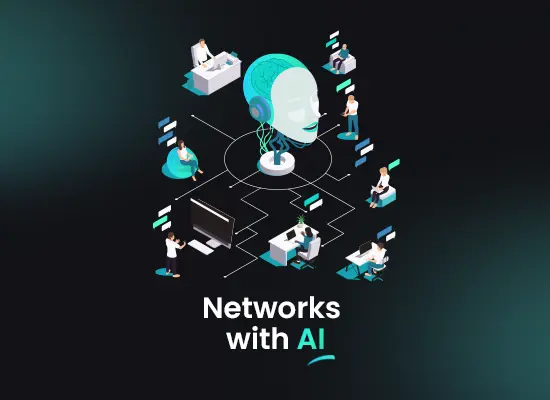
Understand How Networks with AI Incorporation Work
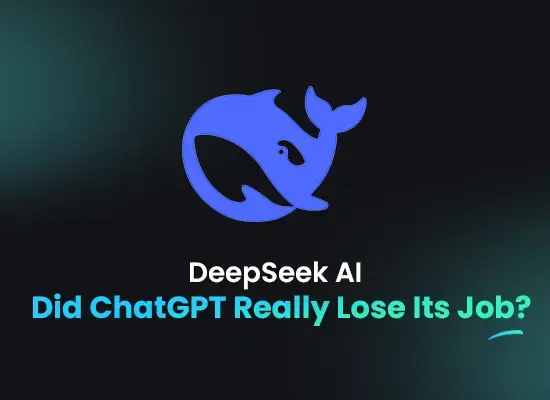
DeepSeek AI – Did ChatGPT Really Lose Its Job?

